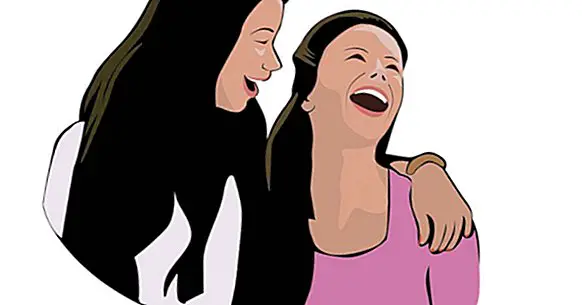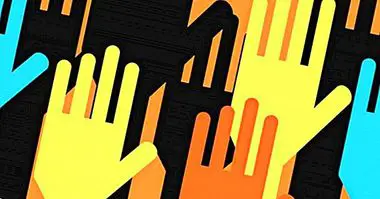Half of our friendships may not be returned, according to a study
Friendship is one of the most important elements in the life of most people, but at the same time, it is very difficult to quantify.
This is so, among other things, because as happens in relationships, friendship is not something that you can own, but a relationship dynamic that involves more than one person . And this is what often makes it unclear if the degree of intensity that we attribute to that relationship is close to the way in which the other person perceives this affective bond.
When friendship is mere imposture ...
But, as the human being is an animal and intelligent, surely we are very good at assessing whether our friends consider us friends ... right?
Well, a recent study published in PLOS ONE suggests that approximately half of our friendships could be unrequited . That is to say, that in a case of every two the person that we believe our friend does not see us as a relevant friendship, which could cause them to be considered false friends or, simply, people whose courtesy is taken by a true attachment.
How was the investigation conducted?
As a sample group to carry out this research, a group of 84 people with ages ranging from 23 to 38 years old was used. The purpose of the study was to see to what extent the relational dynamics of a community of people affect persuading its members, creating opinion streams, etc. However, one of the things that drew the most attention was related to another topic.
In order to have data to work with, the researchers asked them to rate at 5 the grade in which they considered friends to be the rest of the people, being 1 the option "is a stranger" and the 5 "best friend / to". Further, each individual had to score, also on a scale of 5 points, the degree to which he believed that the other person considered him friend or friend .

The results
In general, The vast majority of participants were optimistic when assessing how they were reciprocated in their friendly relations . In 94% of the cases, people used the same number to quantify the degree of friendship they felt and the degree to which they believed the other person corresponded to them. That is, there was a clear tendency to believe that relations were symmetric and bidirectional.
Judging by the data obtained, this optimism was based on an illusion. In 47% of the cases, the scores obtained were not the same .
Fake friends? What are your dark motivations?
There are many ways to interpret these results . One of them is to believe, simply, that the conclusions reached through this research do not correspond to reality. At the end of the day, it is only a study, and it is possible that there have been errors in the sampling, design or analysis of the data. Also, it is true that this could only happen in certain cultures or populations, and not in all the inhabitants of the planet. To know this, it would be necessary to investigate more.
Another way to take it is to believe that the results of this study are a reflection of what really happens in our relationships. It could be that human beings were exceptionally bad when it comes to distinguishing between real friends (which correspond to us) and others that only act in a similar way to what a friend would do.
But there is also another possible explanation: that these conclusions show the consequences of having many non-antagonistic personal relationships. That is, in a time when it is common to have 400 contacts on Facebook, many of whom congratulate us on our birthday without knowing each other, it is increasingly difficult to know who is kind in a totally spontaneous way and who only acts like that out of courtesy. .
At the end of the day, in a culture where image matters more and more, posturing and appearances can also involve what was once our network of relationships based on honesty and affectivity.



















